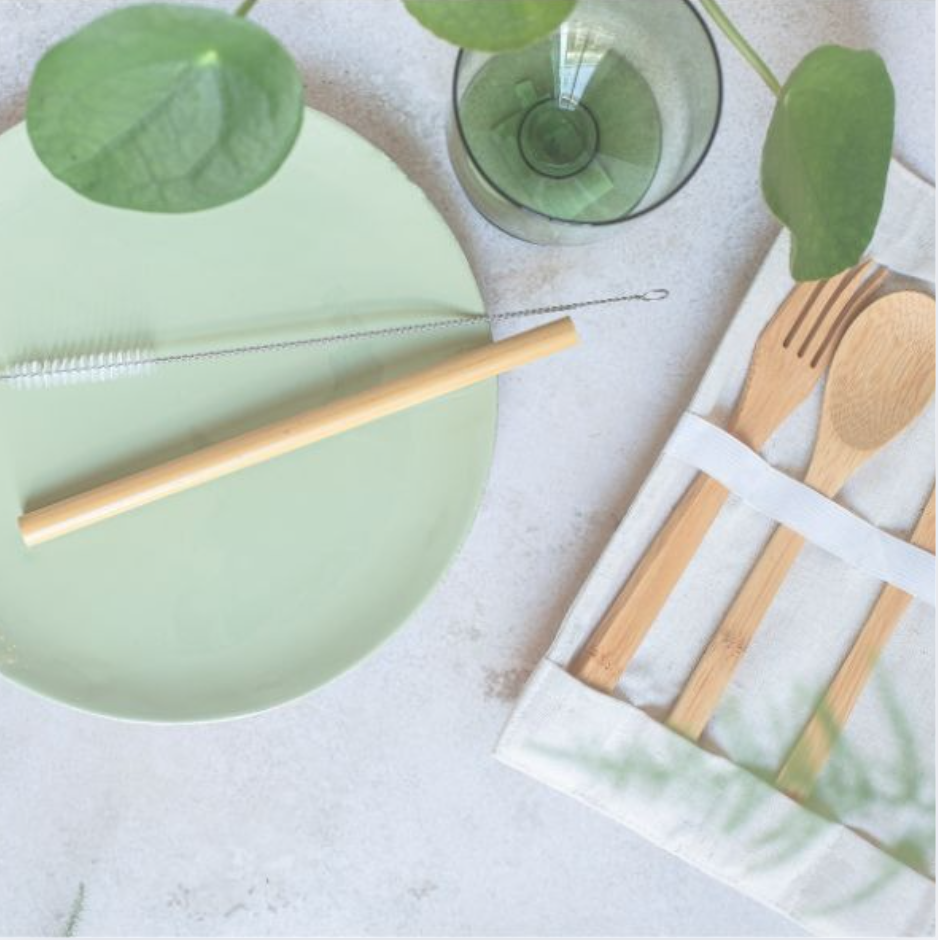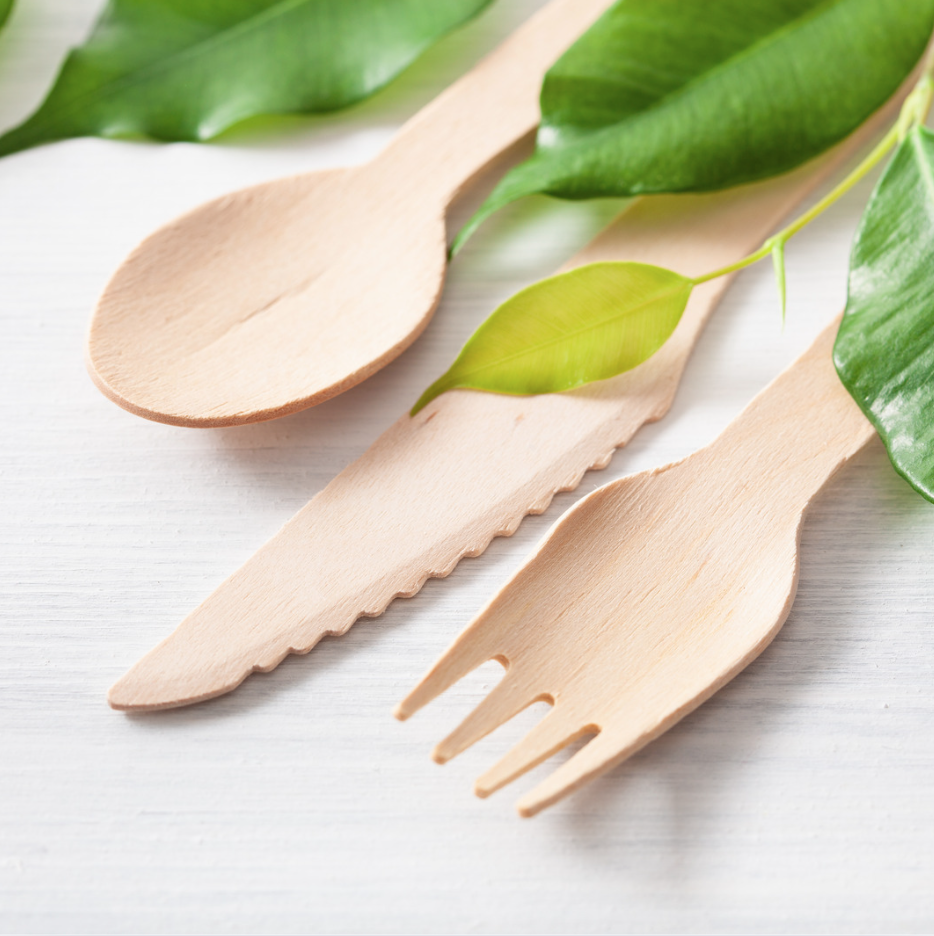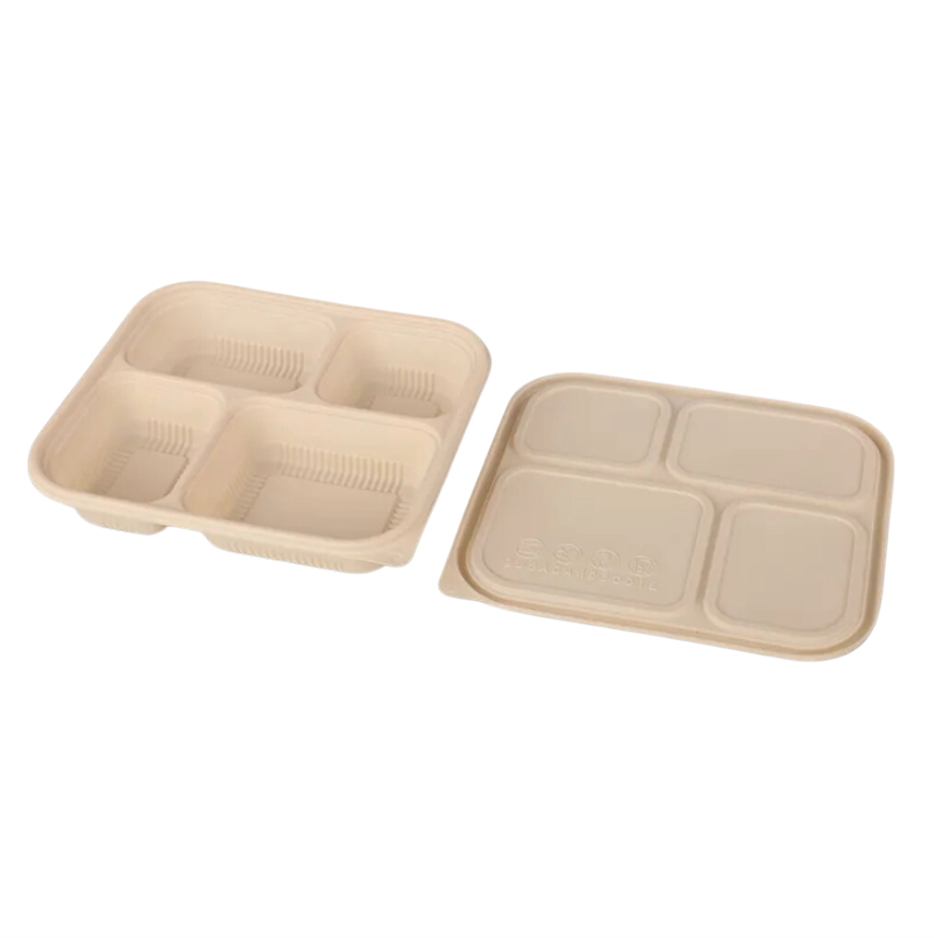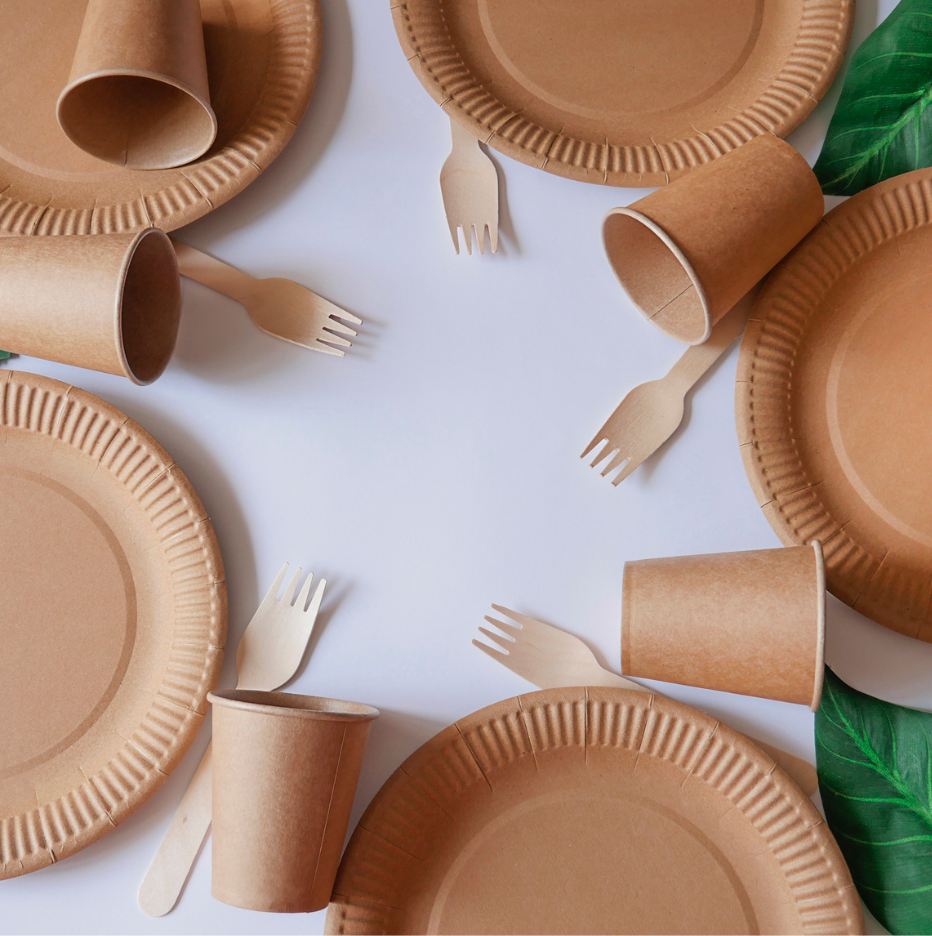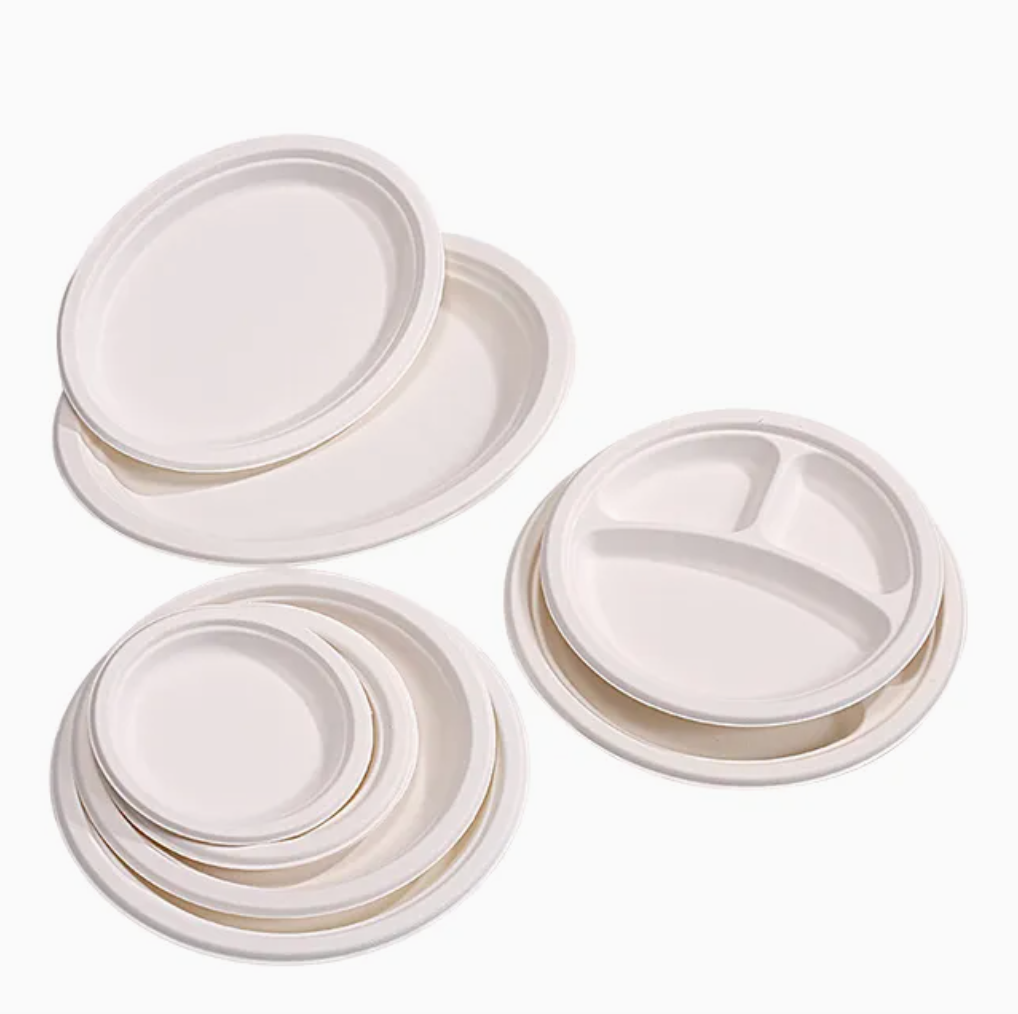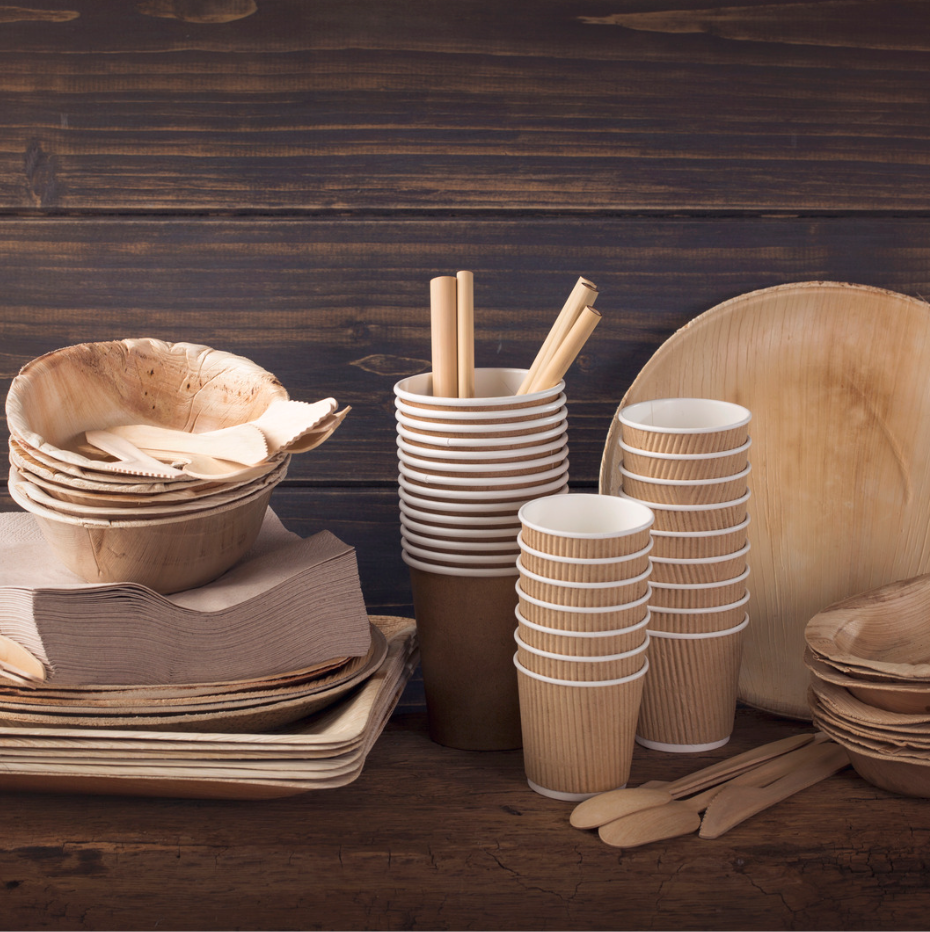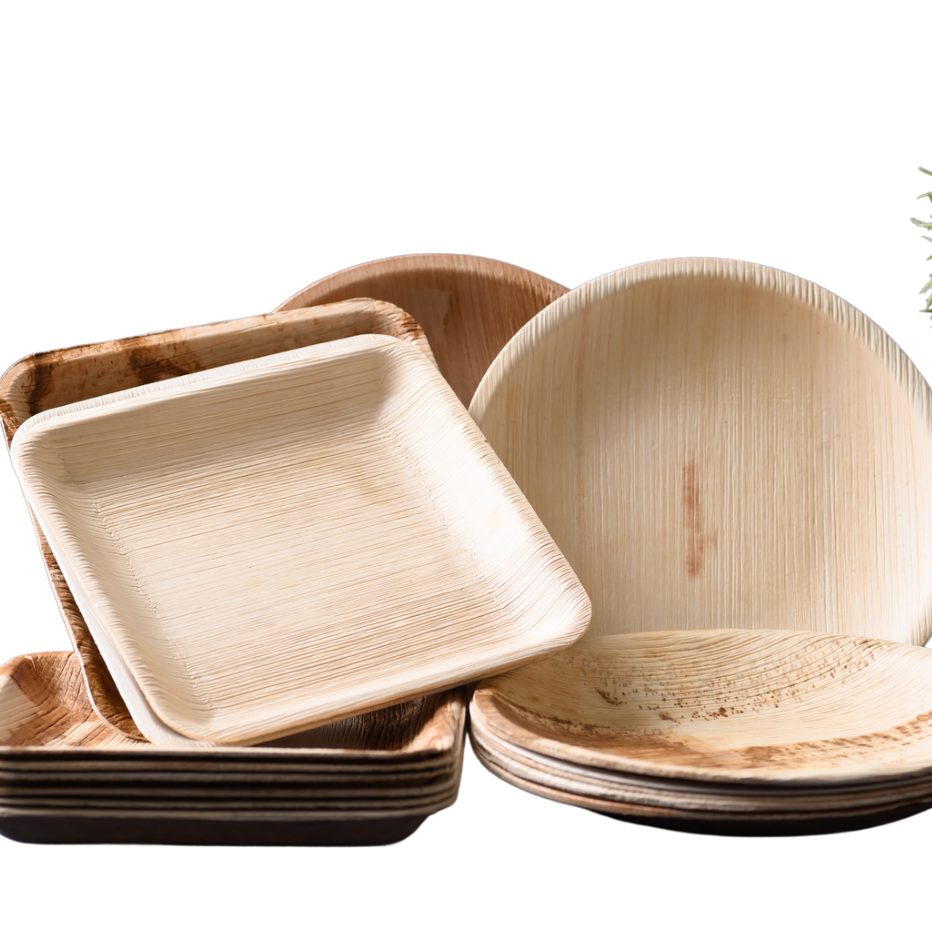Single-use plastics tableware is harmful to our planet. It creates waste that lasts for centuries. Are there better options?
Sustainable alternatives to plastic tableware can reduce environmental harm and offer practical solutions.
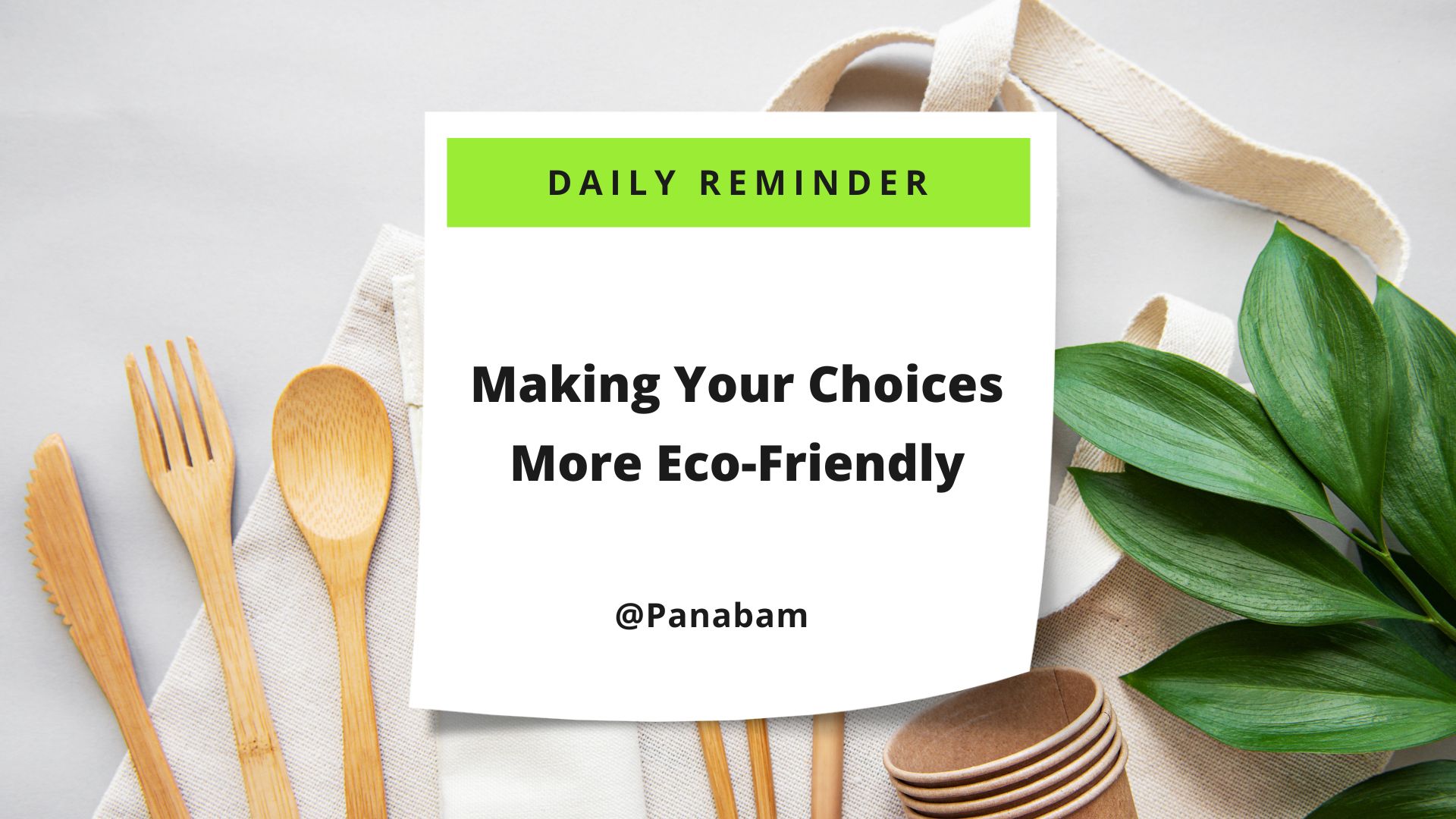
Let’s dive into how single-use plastic affects the environment and explore sustainable alternatives.
The Impact of Single-use Plastic Tableware
Plastic tableware is convenient, but the environmental cost is high. How does plastic waste impact our planet?
Plastic tableware takes hundreds of years to decompose and contributes to pollution.
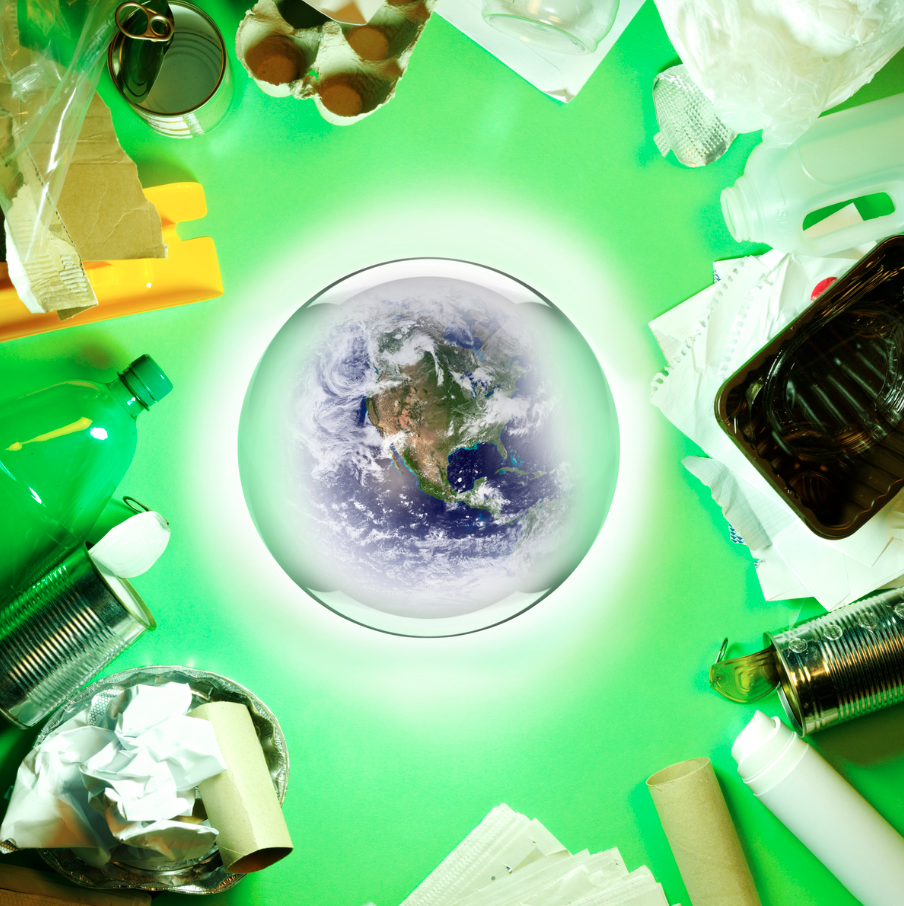
The Environmental Cost of Plastic
The rise in plastic use over the last few decades has caused irreversible damage to the environment. Single-use plastics, such as plates, cups, and utensils, do not break down easily. In fact, they take anywhere from 500 to 1,000 years to decompose in a landfill. This leads to massive plastic accumulation, contributing to pollution in our oceans, rivers, and forests.
The environmental impact of plastic tableware doesn’t stop at its decomposition time. During their long lifespan, plastic items release harmful chemicals into the environment. These chemicals can contaminate soil, air, and water, threatening wildlife and plant life. Marine animals are particularly vulnerable, as they often mistake plastic for food. The ingestion of plastic can lead to starvation, injury, or death.
Key Environmental Facts:
- Decomposition time: 500 to 1,000 years
- Annual ocean plastic waste: 8 million tons
- Marine life deaths: 1 million seabirds and 100,000 marine mammals annually due to plastic ingestion
Increased Demand For Sustainable Solution
As the demand for disposable tableware increases, consumers are seeking more eco-friendly options. Why is there a growing need for sustainable alternatives?
More people are becoming aware of plastic waste and seeking better solutions.
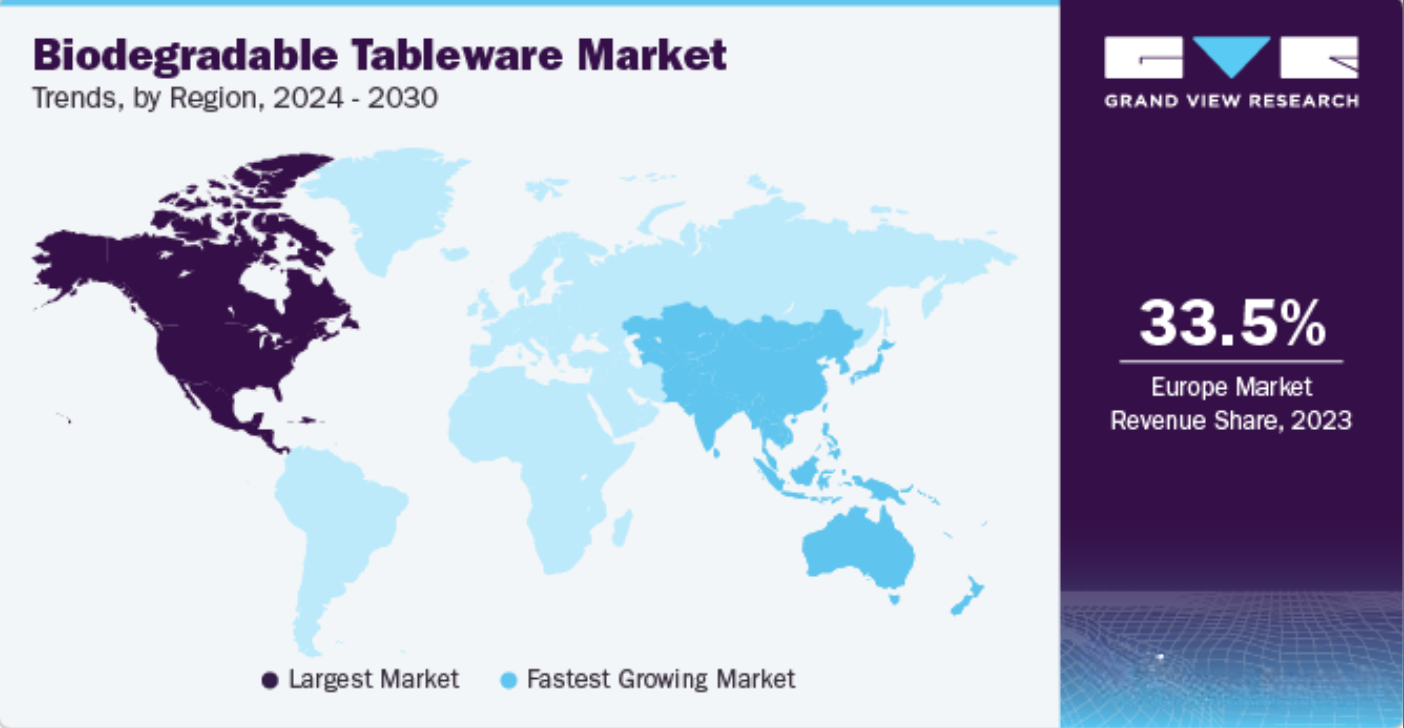
The Shift Toward Sustainable Choices
With rising awareness about environmental issues, people are demanding products that are better for the planet. Governments around the world are starting to implement stricter regulations on plastic use. Countries have introduced bans or taxes on plastic products to reduce waste. This is pushing businesses and consumers alike to explore alternatives.
Consumers are more informed than ever. They want products that are not only functional but also eco-friendly. For instance, customers now prefer to buy from companies that prioritize sustainability in their products. This shift in consumer behavior is driving companies to offer biodegradable, compostable, and recyclable alternatives to plastic.
Reasons for the Demand Shift:
- Environmental awareness: People are more conscious of the effects of plastic waste.
- Government regulations: Bans and taxes on plastic products are becoming more common.
- Consumer preference: People are willing to pay more for eco-friendly products.
7 Sustainable Alternatives to Single-use Plastic Tableware
What are some sustainable alternatives to plastic tableware that can help reduce waste?
The following seven materials provide viable, eco-friendly replacements for plastic tableware.
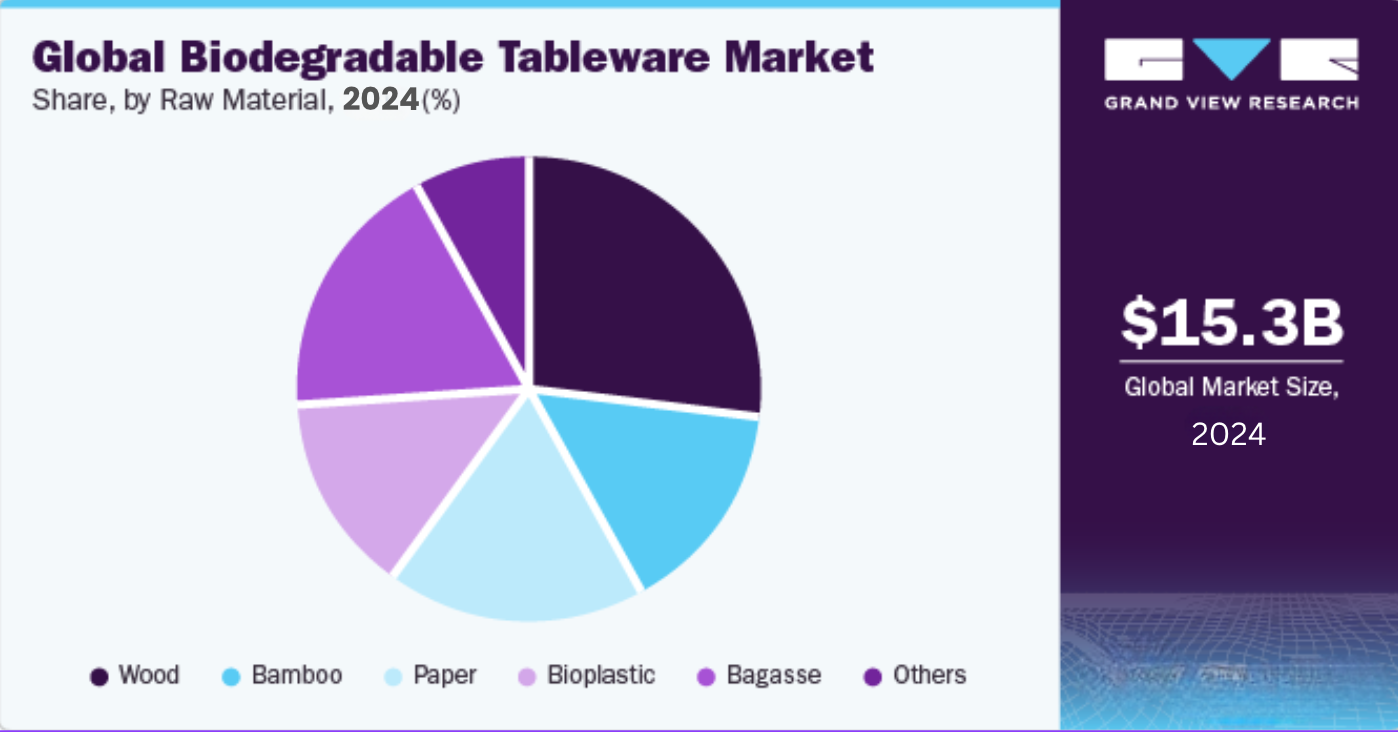
Seven Eco-Friendly Alternatives to Plastic Tableware
Here’s a breakdown of seven popular materials that offer more sustainable alternatives to plastic:
-
Bamboo
- Bamboo is one of the most renewable resources on the planet. It grows quickly without the need for harmful chemicals, making it an environmentally friendly material. Bamboo is strong, durable, and 100% biodegradable, making it ideal for disposable tableware.

- Bamboo is one of the most renewable resources on the planet. It grows quickly without the need for harmful chemicals, making it an environmentally friendly material. Bamboo is strong, durable, and 100% biodegradable, making it ideal for disposable tableware.
-
Wood
- Wood is a natural, biodegradable material. Plates, utensils, and trays made from wood are both sturdy and compostable. Sourcing wood from sustainably managed forests ensures minimal environmental impact.

- Wood is a natural, biodegradable material. Plates, utensils, and trays made from wood are both sturdy and compostable. Sourcing wood from sustainably managed forests ensures minimal environmental impact.
-
Cornstarch
- Cornstarch is a biodegradable material made from corn, a renewable resource. It can be molded into different shapes, making it a good alternative for cutlery, plates, and containers. However, it is not suitable for very hot food or liquids.

- Cornstarch is a biodegradable material made from corn, a renewable resource. It can be molded into different shapes, making it a good alternative for cutlery, plates, and containers. However, it is not suitable for very hot food or liquids.
-
Paper
- Paper tableware, such as plates and cups, is made from wood pulp. It is biodegradable and recyclable, but not all paper products are compostable. Choosing paper made from sustainable sources can help reduce its environmental impact.

- Paper tableware, such as plates and cups, is made from wood pulp. It is biodegradable and recyclable, but not all paper products are compostable. Choosing paper made from sustainable sources can help reduce its environmental impact.
-
Sugarcane (Bagasse)
- Bagasse is the fibrous byproduct of sugarcane extraction. It is biodegradable, compostable, and strong enough to handle both hot and cold foods. Sugarcane-based products are a great alternative to plastic and paper tableware.

- Bagasse is the fibrous byproduct of sugarcane extraction. It is biodegradable, compostable, and strong enough to handle both hot and cold foods. Sugarcane-based products are a great alternative to plastic and paper tableware.
-
Plant Fiber
- Plant fibers from crops like wheat, bamboo, and palm leaves can be used to make disposable tableware. These materials are biodegradable and compostable, providing another environmentally friendly option.

- Plant fibers from crops like wheat, bamboo, and palm leaves can be used to make disposable tableware. These materials are biodegradable and compostable, providing another environmentally friendly option.
-
Palm Leaf
- Palm leaves are naturally durable and biodegradable. They are often used for high-end disposable plates and trays. Palm leaf tableware is unique, sturdy, and compostable, making it a great choice for environmentally conscious businesses.

- Palm leaves are naturally durable and biodegradable. They are often used for high-end disposable plates and trays. Palm leaf tableware is unique, sturdy, and compostable, making it a great choice for environmentally conscious businesses.
Sustainable Alternatives Comparison:
| Material | Biodegradable | Compostable | Durability | Cost |
|---|---|---|---|---|
| Bamboo | Yes | Yes | High | Medium |
| Wood | Yes | Yes | Medium | Medium |
| Cornstarch | Yes | Yes | Low | Low |
| Paper | Yes | Yes (some) | Medium | Low-Medium |
| Sugarcane (Bagasse) | Yes | Yes | Medium | Low |
| Plant Fiber | Yes | Yes | Medium | Medium |
| Palm Leaf | Yes | Yes | High | Medium |
Multi-Dimensional Comparison
Choosing the right alternative to plastic tableware requires considering several factors. What factors should you focus on when making this decision?
It’s important to compare the cost, durability, and environmental impact of each material.
Comparing Eco-Friendly Tableware Materials
Each of these sustainable alternatives has its own pros and cons. Let’s take a closer look at the key factors that you should consider before making your decision.
- Price: Generally, paper, cornstarch, and bagasse are the most affordable materials. Bamboo and palm leaf products tend to be more expensive but offer superior durability.
- Durability: Bamboo and palm leaf products are the most durable, withstanding both hot and cold foods. Cornstarch and paper products are more fragile and better suited for light use.
- Environmental Impact: Bamboo and sugarcane are the most environmentally friendly options because they are made from renewable resources and are biodegradable. On the other hand, paper is recyclable but may not be fully compostable depending on the coating.
Material Comparison:
| Factor | Bamboo | Wood | Cornstarch | Paper | Sugarcane (Bagasse) | Plant Fiber | Palm Leaf |
|---|---|---|---|---|---|---|---|
| Price | Medium | Medium | Low | Low-Medium | Low | Medium | Medium |
| Durability | High | Medium | Low | Medium | Medium | Medium | High |
| Environmental Impact | Low | Low | Medium | Medium | Low | Low | Low |
Panabam: Your Eco-friendly Disposable Foodservice Manufacturer
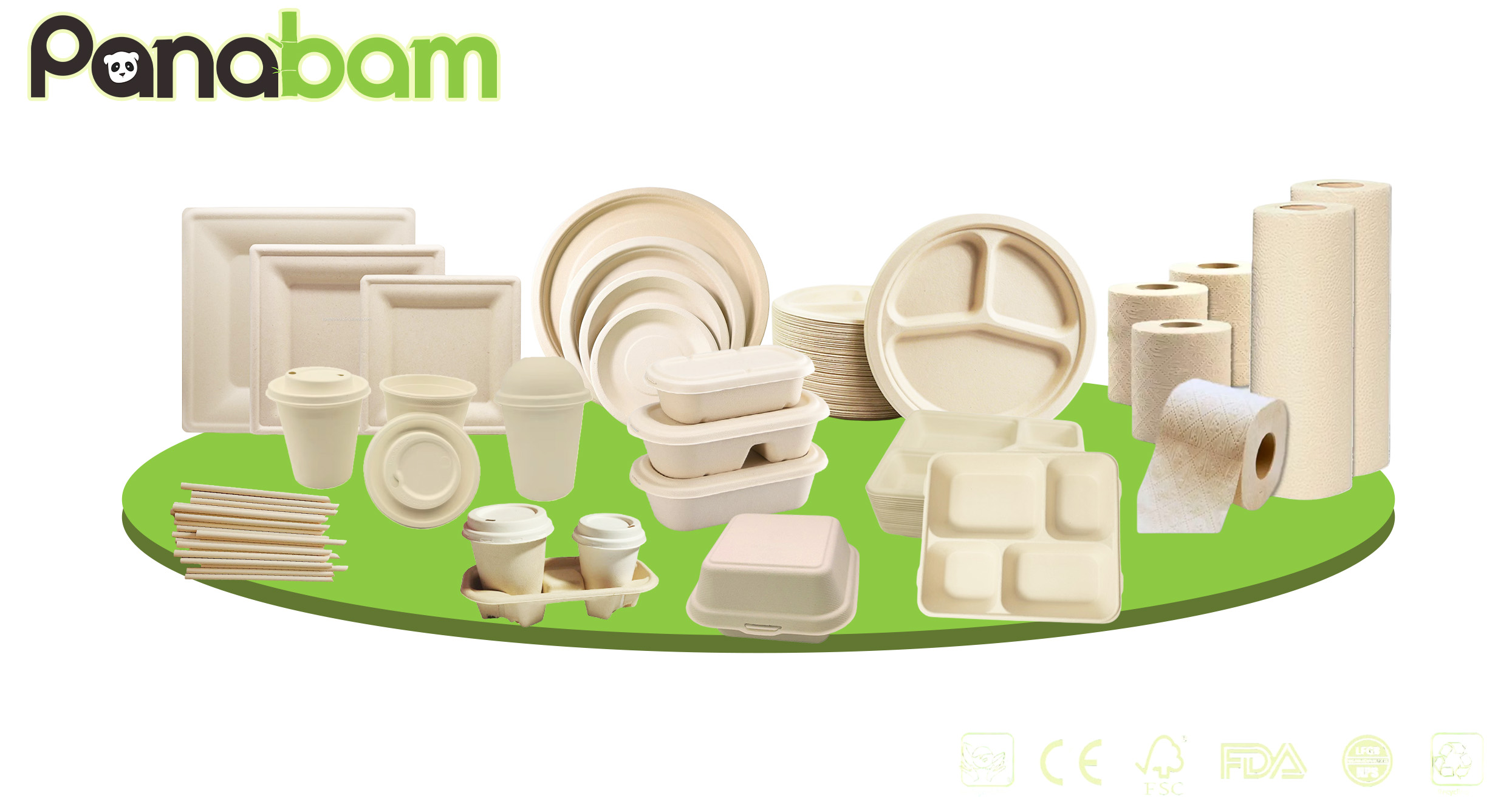
PANABAM leverages a strong NPD pipeline to meet evolving food and drink trends, global market opportunities, and consumer behaviors like increased home delivery. We explore plant-based materials that are food-safe and certified compostable, enabling us to innovate with new, sustainable applications in foodservice packaging.
Website: www.panabam.com
Address: 3th Floor No.1607, Century Avenue.Chongzhou city, Chengdu, Sichuan,China
Products Range:
Disposable Plates & Bowls: Bamboo-based, eco-friendly, and suitable for foodservice.
Take-out Boxes: Biodegradable packaging for takeaway meals.
Straws: Sustainable bamboo straws.
Cutlery Sets: Knife, fork, spoon sets, customizable and eco-friendly.
Coffee Cups: Sustainable, eco-friendly bamboo coffee cups for beverage service.
Bamboo Pulp Paper Towels: Compostable and absorbent, perfect for eco-conscious households or businesses.
Summary: Rethinking Your Tableware Choices
As the world increasingly moves away from single-use plastics, sustainable alternatives such as bamboo, wood, cornstarch, paper, and palm leaf are becoming essential. These options not only help reduce plastic waste but also offer unique environmental benefits.
Whether for commercial or personal use, switching to eco-friendly tableware can significantly lower our carbon footprint. By choosing materials that are biodegradable, compostable, and renewable, we can contribute to a cleaner, greener future while still meeting the demands of modern-day convenience and quality.

Shmily Lee
Hi there! I’m Shmily, a proud mom to an amazing 8-year-old boy and the manager of PANABAM. We’ve been producing eco-friendly bamboo tableware that’s both sustainable and high-quality. I’m passionate about helping businesses embrace greener solutions. Let’s connect and create a more sustainable future together!


